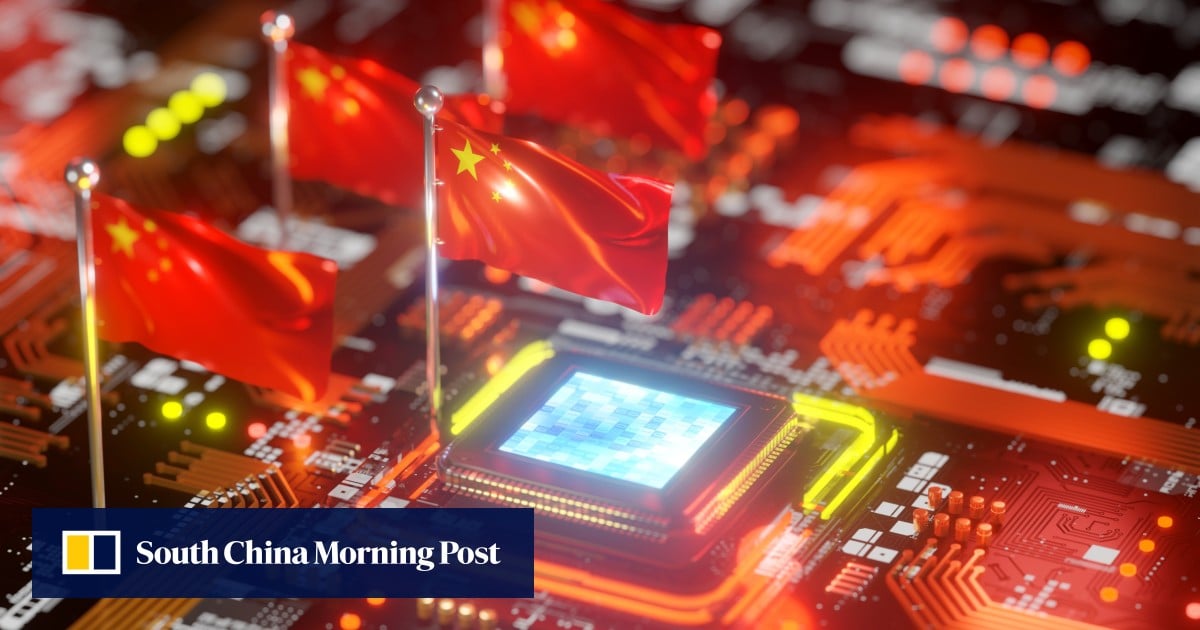Taiwan’s Strategic Push in the Tech Rivalry: The Blacklisting of Huawei and SMIC
In a significant development amid escalating tensions between the US and China, Taiwan has officially added two of China’s leading chipmakers—Huawei Technologies and Semiconductor Manufacturing International Corp (SMIC)—to a trade blacklist. This decision comes from the International Trade Administration of Taiwan and reflects ongoing tensions in the global tech landscape.
Context of the Blacklisting
The inclusion of Huawei and SMIC in a Strategic High-Tech Commodities Entity List is part of Taiwan’s broader strategy to protect its semiconductor industry amidst increasing competition. Published on the Ministry of Economic Affairs’ website, this updated entity list prohibits both companies from obtaining crucial semiconductor technologies from Taiwanese firms. This move is seen as a significant setback for China’s ambitions to enhance its chipmaking capabilities and become a major competitor to US tech giants like Nvidia.
Implications for China’s Semiconductor Ambitions
China has vigorously pursued self-sufficiency in semiconductor manufacturing, aiming to lessen its reliance on US technology. The blacklisting of Huawei and SMIC hampers that vision, given that Taiwan is a global leader in semiconductor production. By restricting these firms from accessing advanced Taiwanese technologies, Taiwan essentially tightens the screws on China’s aspirations to develop its own high-performance chips.
Ray Wang, a notable semiconductor and tech analyst based in Washington, stated that these new restrictions deal a decisive blow to existing loopholes that allowed collaboration between Chinese firms and Taiwanese companies. The continuation of such export bans by the US and its allies on Chinese tech leaders underscores the growing consensus about the strategic importance of semiconductor technology in national security.
International Relations and Geopolitical Tensions
The implications of Taiwan’s decision are not just economic but also deeply intertwined with international relations. Beijing views Taiwan as a breakaway province and has made it clear that it would consider any moves toward independence as a reason for military intervention. While most countries—including the US—do not formally recognize Taiwan as an independent nation, the United States has expressed strong opposition to any coercive measures from Beijing against Taipei.
This balance of power is becoming increasingly complex, not only because of territorial claims but also due to technological superiority. The US is committed to arming Taiwan, underscoring its strategic importance in countering Chinese influence in the region.
The Role of Global Supply Chains
The semiconductor industry operates on a global scale, with supply chains intricately linked across various countries. Taiwan’s position is unique; it houses companies that manufacture some of the world’s most advanced chips. The recent escalation in restrictions not only reminds us of Taiwan’s pivotal role in global tech but also amplifies challenges for companies reliant on these semiconductor supplies.
The fallout from this blacklist could ripple through the global market, affecting partnerships and collaborations that have been beneficial for both Taiwanese and Chinese companies. By limiting access, the technology gap between these rivalling nations might widen, especially as the US aims to maintain its technological edge.
Future Landscape of Semiconductors
As the race for technological superiority intensifies, the dynamics of the semiconductor landscape are shifting dramatically. Both Huawei and SMIC find themselves under significant pressure, unable to acquire the technology that is crucial for innovation and advancement.
The US has been active in promoting domestic semiconductor manufacturing through various initiatives and funding efforts aimed at reducing dependency on foreign supply routes. This further complicates the situation for firms involved, as they grapple with navigating both international relations and competitive pressures.
Taiwan’s bold decision to blacklist these firms amid its historical tensions with China highlights the intersection of technology and geopolitics. The ramifications of this move may lead to long-term strategic shifts within the global semiconductor industry, making it a space to watch closely in the coming years.


